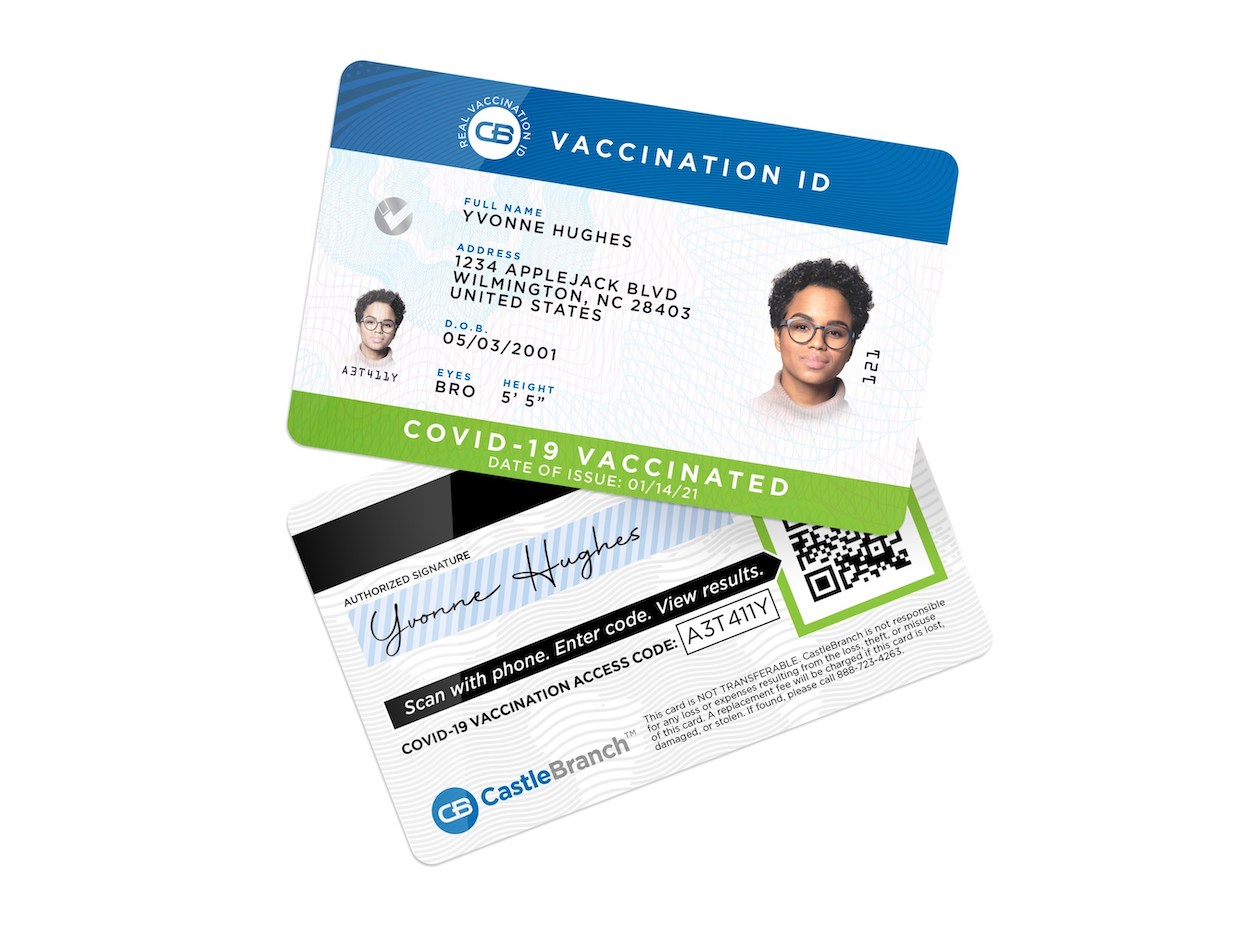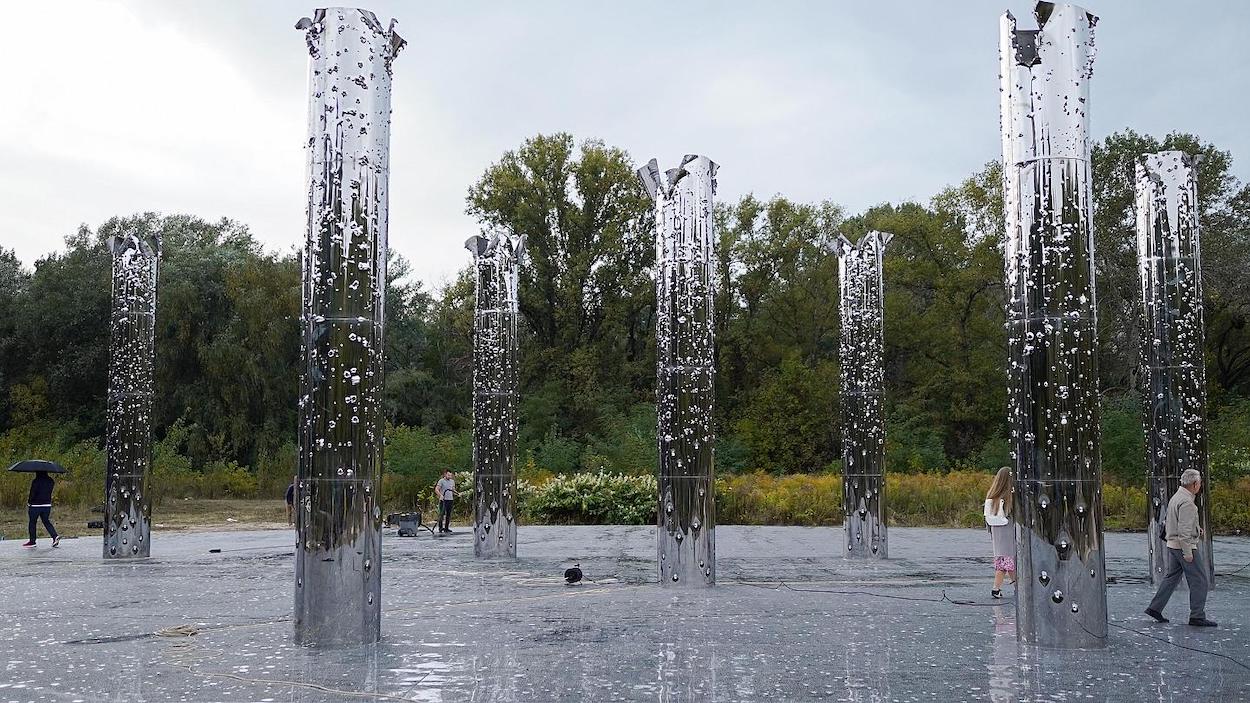The Design Dispatch offers expertly written and essential news from the design world crafted by our dedicated team. Think of it as your cheat sheet for the day in design delivered to your inbox before you’ve had your coffee. Subscribe now.
Have a news story our readers need to see? Submit it here.
CastleBranch rolls out a Covid-19 “vaccine passport” that verifies vaccination status.
Welcome back to reality… sort of. The next widespread form of ID may very well be aligned with the rollout of Covid-19 vaccines. The North Carolina compliance management firm CastleBranch has begun issuing ID cards for U.S. citizens to prove that they’ve received the vaccine. To qualify for the card, individuals submit vaccine documentation for review to the firm, which will verify the vaccine manufacturer, administration date, and time between doses.
“CastleBranch’s real vaccination ID will be your passport to the world,” says Brett Martin, CEO of CastleBranch, who further notes that the ID cards let holders “retain complete control and ownership over their own personal information” despite concerns over potential data breaches. The credit-card sized documents, which cost $19.95, will use “forgery-prevention technology” and unique access codes that can be used to electronically verify vaccination status.
Amazon’s expansion continues with the announcement of 3,000 new jobs in Boston.
Amazon, the nation’s second-largest employer, continues to expand its reach, announcing it will add 3,000 new employees in Boston. The roles will include technology and software development, and span numerous divisions: Amazon Robotics, Amazon Web Services, Alexa smart speaker system, and newcomer Amazon Pharmacy. The announcement follows a record year of expansion for the tech company, which expanded its payroll by more than 400,000, bringing its global workforce to 1.1 million. The total number of U.S. employees now stands at more than 800,000, reflecting the rapid growth in cities such as New York, San Diego, and Dallas this past year.
Three years after Kate Spade’s untimely death, her best friend is upholding her legacy.
When Kate Spade took her own life, in 2018, people around the world mourned her loss and reflected how her namesake brand shaped their sensibilities. Spade sold her company more than a decade prior, but in the years preceding her death, she launched another label, Frances Valentine, that expressed her brazen, yet ebullient perspective. The six-year-old brand is now being helmed by Elyce Arons, a longtime confidante and business partner of Spade, who’s working to keep her departed friend’s legacy alive. In an interview, Arons notes that the company saw a 40 percent spike in orders after producing physical catalogs—a conversion rate 275 percent higher than the industry average—that has helped keep the business afloat during the pandemic. “They are pieces that make you feel happy,” Arons tells Fast Company. “They’re designed to be heirloom pieces that you pass on to your kids.” She adds: “I think [Spade] would be very happy with where the company is now.”



